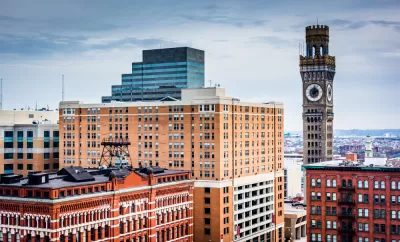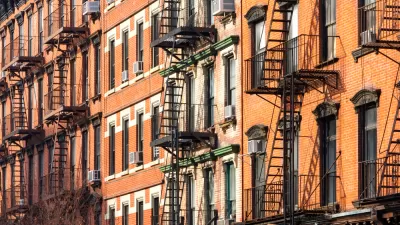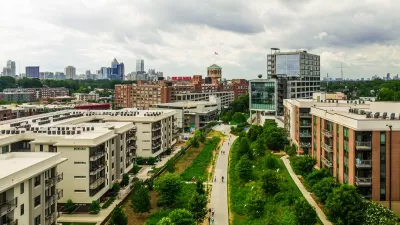A grassroots housing plan in Baltimore would keep control over neighborhood revitalization, and its benefits, in communities.

The "20/20 Vision for Fair Development" plan calls for the city to commit to an annual investment of $40 million. Half would go toward demolishing vacant and blighted properties; the other half would be a long-term investment in plans to rebuild permanently affordable housing through community land trusts.
Community land trusts, or CLTs, are nonprofits that establish communally owned property under a democratic governance structure. Baltimore Housing Roundtable, the coalition behind the proposal, says joint land ownership offers the possibility of neighborhood revitalization, and housing, without the risk of displacement:
"When these community controls are leveraged against market forces, neighborhoods can ensure a communally managed recycling of ownership, and avoid the frenzied churn of renters and developers commonly associated with boom-bust speculation and gentrification."
A city board recently took a different tack, approving a $600-million urban revitalization program from the governor that will incentivize new development on demolished properties.
"Project C.O.R.E." is the type of plan to which CLTs are proposed as an alternative. Advocates say the strategy of attracting private developers with little community accountability can be difficult to distinguish from an attempt to attract a new community to fill private developments. A January report from the Housing Roundtable reads:
"When significant numbers of people are constantly threatened with homelessness and the city can offer only trickle down development that, if successful, will further increase housing costs, the only reasonable conclusion is that involuntary displacement of a certain class of residents is a foreseeable part of the city’s plan and policy."
The Nation delves deeper into competing visions for Baltimore, and the possibilities for revitalization without gentrification.
FULL STORY: Can Neighborhoods Be Revitalized Without Gentrifying Them?

Alabama: Trump Terminates Settlements for Black Communities Harmed By Raw Sewage
Trump deemed the landmark civil rights agreement “illegal DEI and environmental justice policy.”

Planetizen Federal Action Tracker
A weekly monitor of how Trump’s orders and actions are impacting planners and planning in America.

Why Should We Subsidize Public Transportation?
Many public transit agencies face financial stress due to rising costs, declining fare revenue, and declining subsidies. Transit advocates must provide a strong business case for increasing public transit funding.

Understanding Road Diets
An explainer from Momentum highlights the advantages of reducing vehicle lanes in favor of more bike, transit, and pedestrian infrastructure.

New California Law Regulates Warehouse Pollution
A new law tightens building and emissions regulations for large distribution warehouses to mitigate air pollution and traffic in surrounding communities.

Phoenix Announces Opening Date for Light Rail Extension
The South Central extension will connect South Phoenix to downtown and other major hubs starting on June 7.
Urban Design for Planners 1: Software Tools
This six-course series explores essential urban design concepts using open source software and equips planners with the tools they need to participate fully in the urban design process.
Planning for Universal Design
Learn the tools for implementing Universal Design in planning regulations.
Caltrans
Smith Gee Studio
Institute for Housing and Urban Development Studies (IHS)
City of Grandview
Harvard GSD Executive Education
Toledo-Lucas County Plan Commissions
Salt Lake City
NYU Wagner Graduate School of Public Service





























